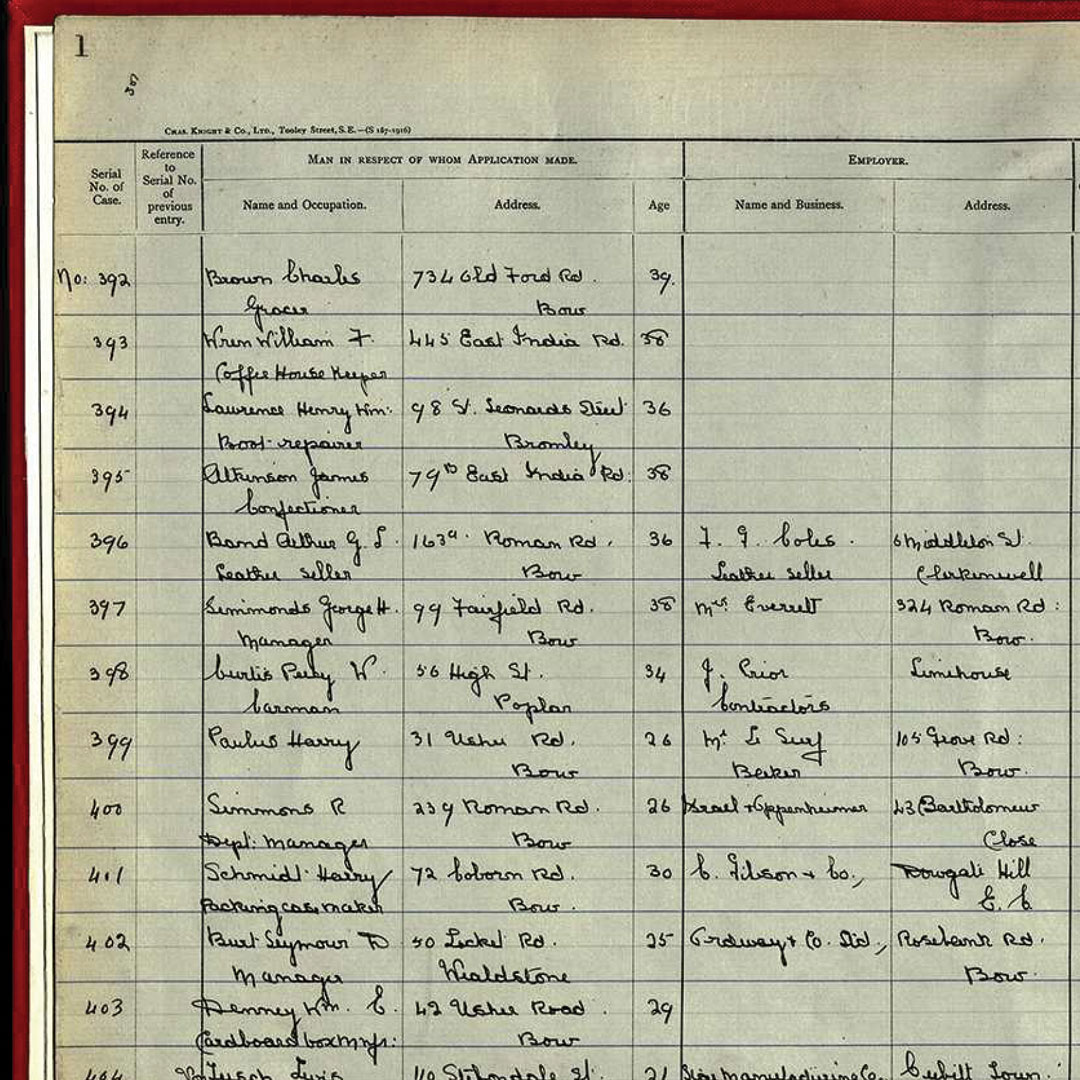Poplar Military Service Tribunal Register
The First World War began in 1914. In January 1916, Prime Minister Asquith introduced the compulsory enlistment of men for military service.
This is also known as conscription. The Military Service Act came into force on 2 March 1916.
All men between the ages of 18 and 41 who were single, childless and/or widowers could be conscripted.
As the war continued, the need for more men increased. Conscription extended to married men in May 1916. The age increased to 51 in May 1918.
Supporting documents
Individuals could apply for an exemption from military service. A person could appeal on the grounds of
- ill health
- serious economic hardship
- conscientious objection to the war
- if their education or employment was of national importance. The individual’s employer could appeal on their employee’s behalf.
Most tribunal records were destroyed after the First World War. Some local authorities preserved the records.
The Metropolitan Borough of Poplar which included Bow, Bromley and the Isle of Dogs kept the Poplar case register.
Explore digital images and index to the register from this page. The details include
- Name
- Occupation
- Address
- Age
- Employer’s name
- Employer’s business
- Employer’s address
Grounds of application for exemption are given by letter of the alphabet. The key to the letter system is as follows:
A -- 'on the ground that it is expedient in the national interests that the man should, instead of being employed in military service, be engaged in other work in which he is habitually engaged'
B -- 'on the ground that it is expedient in the national interests that the man should, instead of being employed in military service, be engaged in other work which he wishes to be engaged'
C -- 'if he is being educated or trained for any work, on the ground that it is expedient in the national interests that, instead of being employed in military service, he should continue to be so educated or trained'
D -- 'on the ground that serious hardship would ensue if the man were called up for Army service, owing to his exceptional financial or business obligations or domestic position'
E -- 'on the ground of ill-health or infirmity'
F -- 'on the ground of a conscientious objection to the undertaking of combatant service'
G -- 'on the ground that the principal and usual occupation of the man is one of those included in the list of occupations certified by Government Departments for exemption'
- Application made by man or employer. The transcript will display this information as 'M', for man, or 'E', for employer
- Date received
- Date of hearing
- Case serial number
Download our index and images of the register under Supporting Documents.
You can also view the register as a PDF Flip Book.
The images provide further details of the hearing including the decision of the tribunal.
Entries show if the applicant was exempt from service. The exemption terms are 'temporarily', 'conditionally' or 'absolutely'. It also shows if the appeal was refused.
You can view images of the Tribunal Register on Find My Past with a subscription.
Archive reference: L/PMB/B/6/1
Acknowledgements: Heritage Lottery Fund and a team of volunteers.

